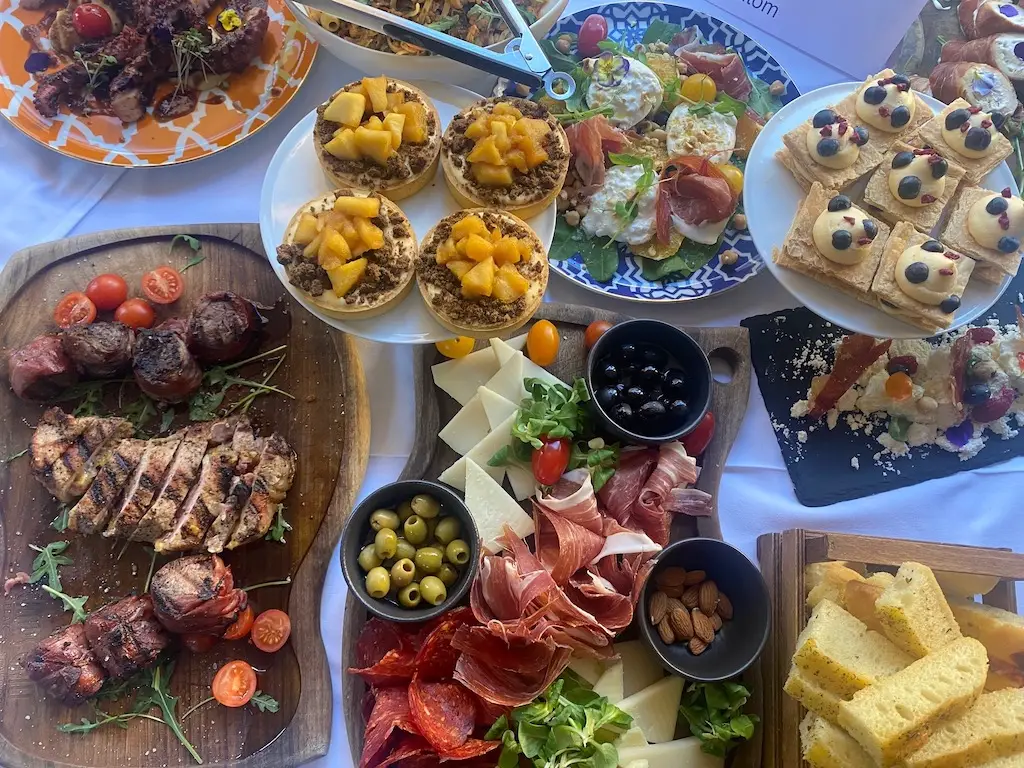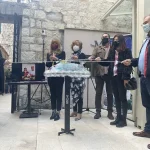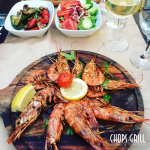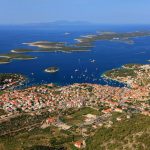Radio journalists and representatives of the tourist boards and project partners lit the fourth Gastroadvent candle, decorating the wreath made this year by artist Tonka Alujević. Along with the herbs of the Mediterranean, the wreath represents a lifebuoy, which Tonka says is a maritime object that serves to save a man who, for various reasons, is helpless in the sea and is in mortal danger. And that is exactly the health and political position we are in at the moment.”
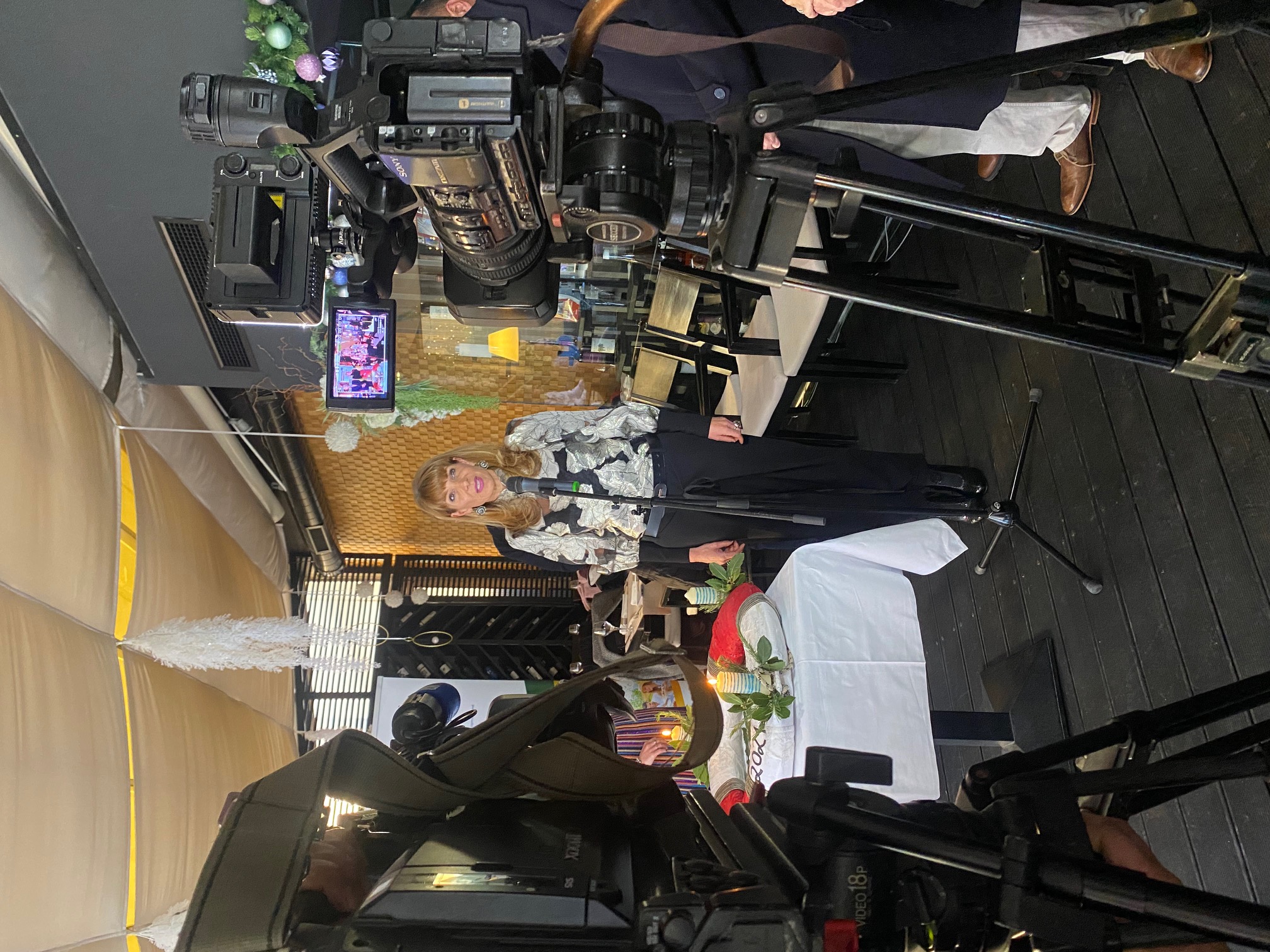
Gastroadvent is a unique event that has promoted the Mediterranean diet for decades through a fusion of nutrition, gastronomy, and tourism. Thanks to the engagement and participation of dedicated journalists, who continue to bring light to Split, the event persistently shares scientific knowledge woven into gastronomic skills, the numerous health benefits of the Mediterranean diet, and the preparation of dishes from unique ingredients. The event’s philosophy is to pass on the existing advantages to fellow citizens and offer them to guests.
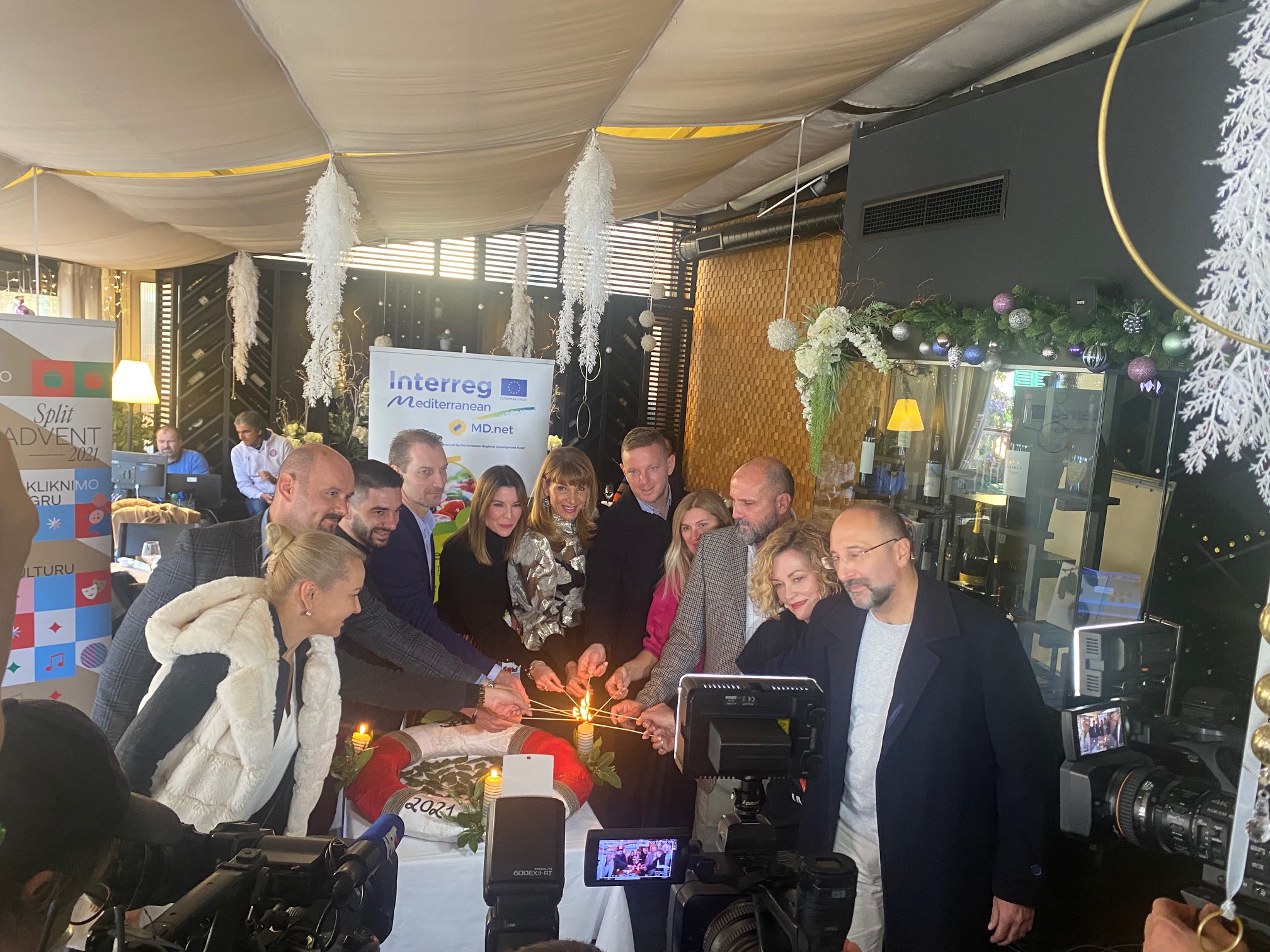
The Mediterranean diet is not a closed and defined list of foods or a list of dishes that guarantee the sequence of this diet model. This is evident in the way UNESCO described the Mediterranean diet in 2010 when it recognized it as an intangible cultural heritage:
“Mediterranean nutrition is a set of skills, knowledge, practices, and traditions ranging from field to table, including crops, harvest, fishing, canning, processing, preparation and, in particular, food consumption. The Mediterranean diet is characterized by a dietary model that has remained unchanged over time and space and consists mainly of olive oil, cereals, fresh vegetables and fruits, moderate amounts of fish, milk, and meat, and many spices and moderate wine consumption, respecting the habits of individual communities.
Today, science and the protagonists are not talking about the Mediterranean diet, but about the way of the Mediterranean diet, which is not just a list of food and dishes. The mentioned term covers a much broader spectrum, so this gathering of ours shows it as well,” says the Gastroadvent organizer, Olja Martinić.
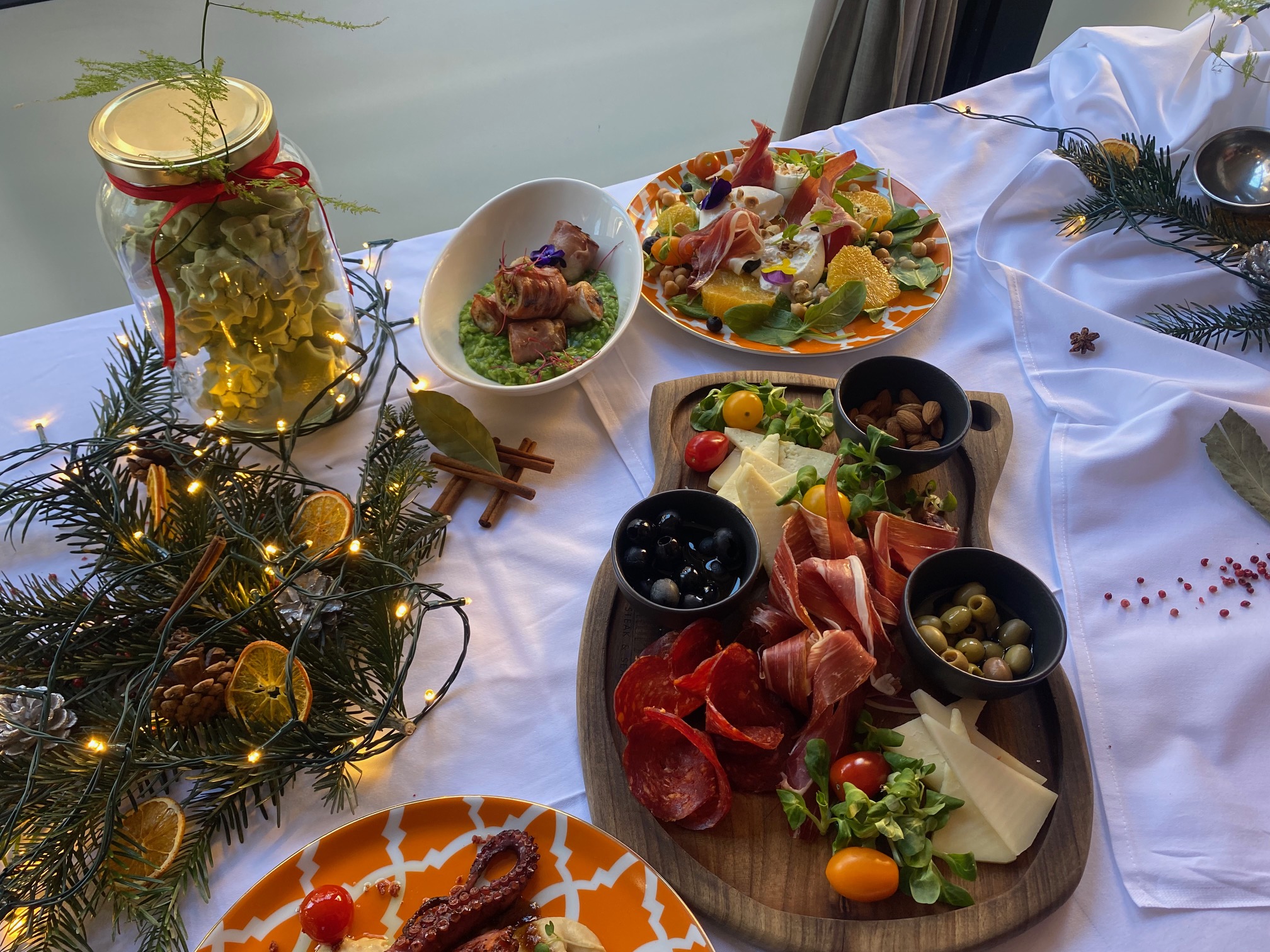
Inspired by prosciutto and herbs, the culinary table was designed and prepared by the head chef of Chops Grill, Ivan Nikolic, sous chef Toma Tripalo, and Pastry Chef Filipa Jurcević. The menu featured fritters with prosciutto, bomboline, classic cold prosciutto / cheese platters with homemade fig jam and pickled vegetables, baked fruit wrapped in prosciutto served with burrata mozzarella, homemade Žrnovo macaroni with prosciutto and truffles, steak bits with prosciutto and plums, monkfish with prosciutto, and much more.
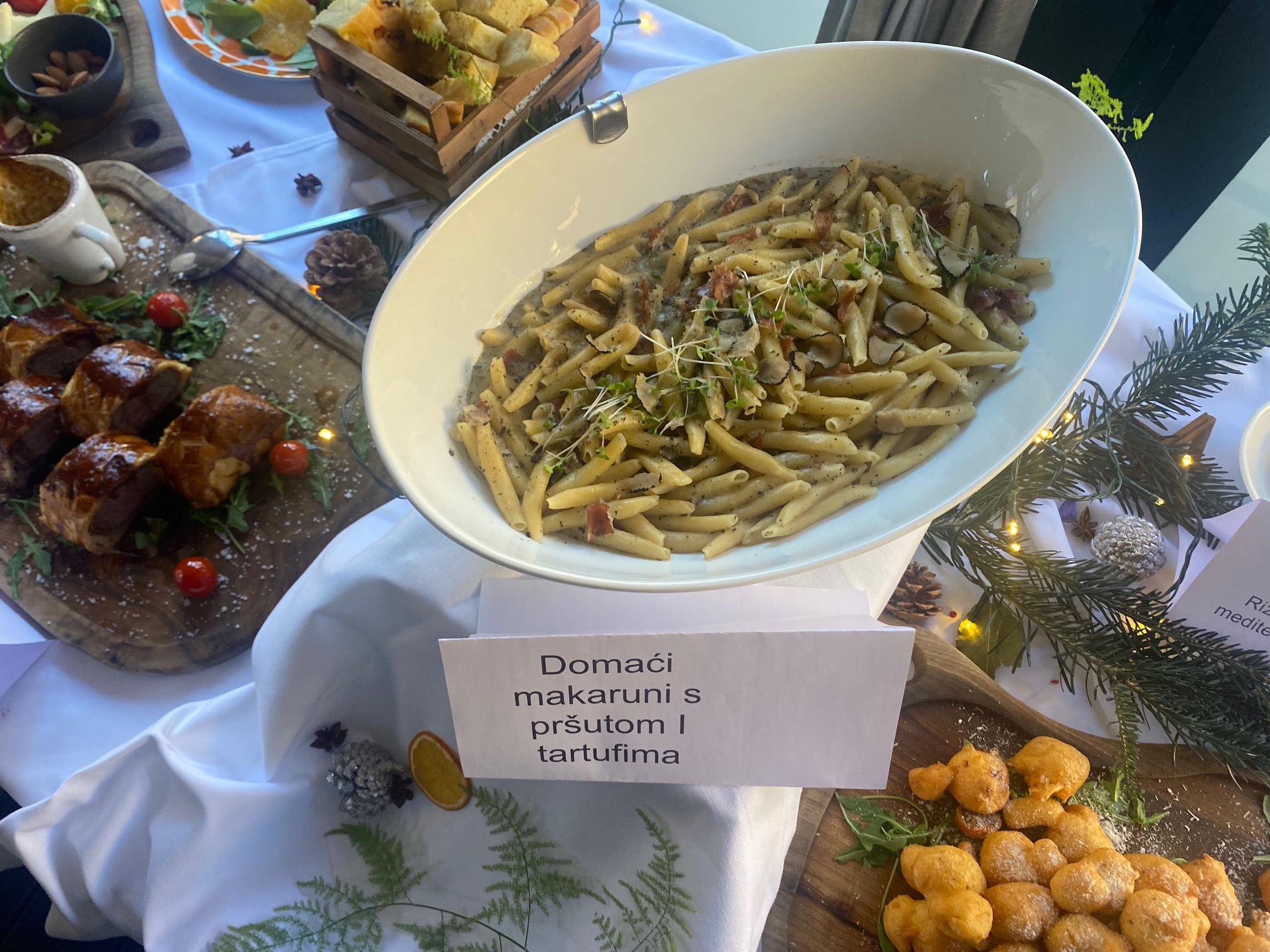
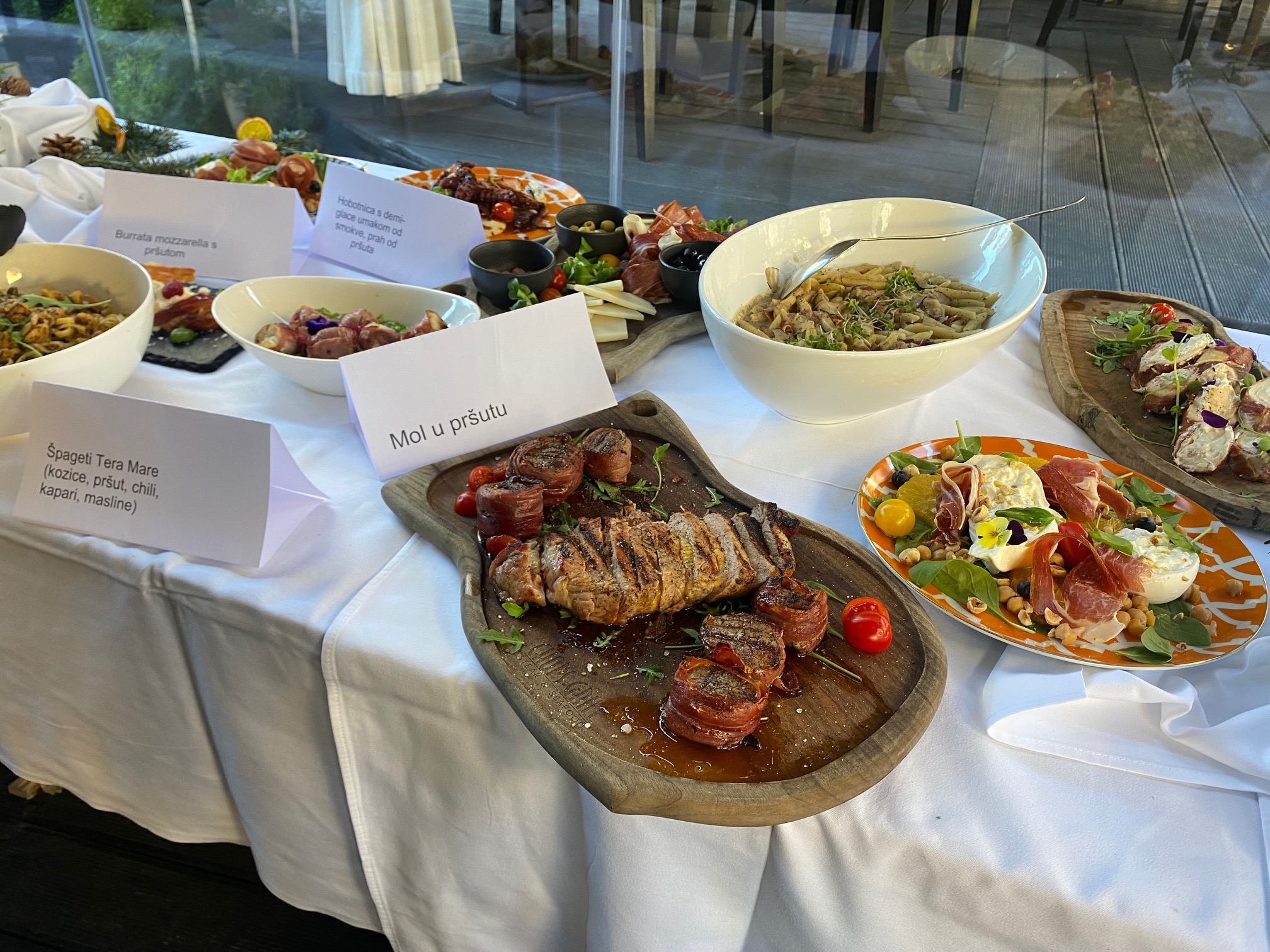
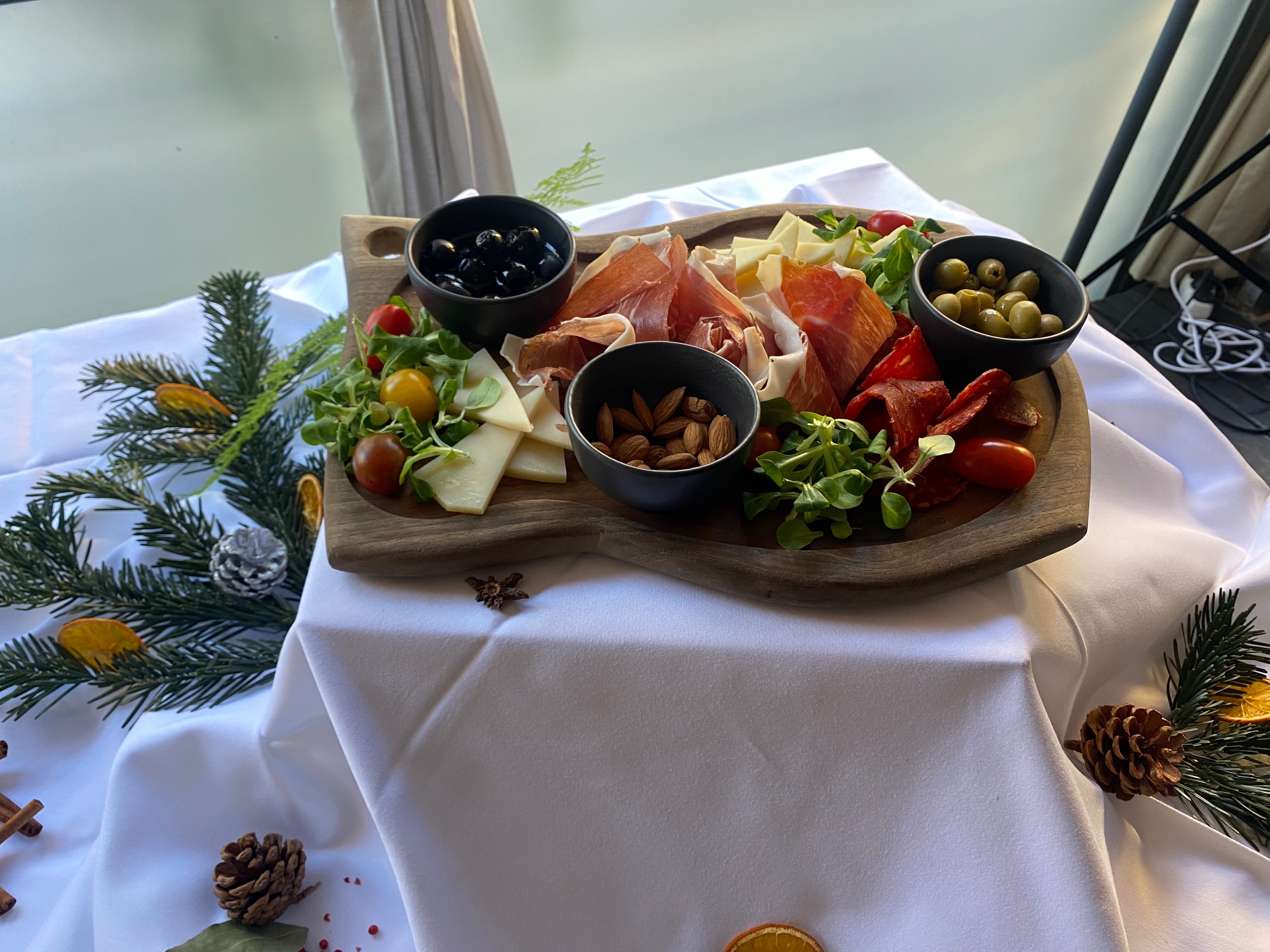
And for dessert, chocolate cake and grandma’s cake with raspberries and almonds, to name a few.
Rizman wine accompanied the delicious dishes. The philosophy of the Rizman winery is based on a long viticultural tradition and an ecological approach in the vineyard and cellar.
“With this ecological certificate, we give legitimacy to the original and autochthonous thing we strive for. Ever since Rizman’s great-grandfather, who was not driven away from the hearth by the downy mildew and who returned and replanted the vine in the Neretva Valley, we have been tirelessly telling the story of the harmony of man and nature, stone and vine.
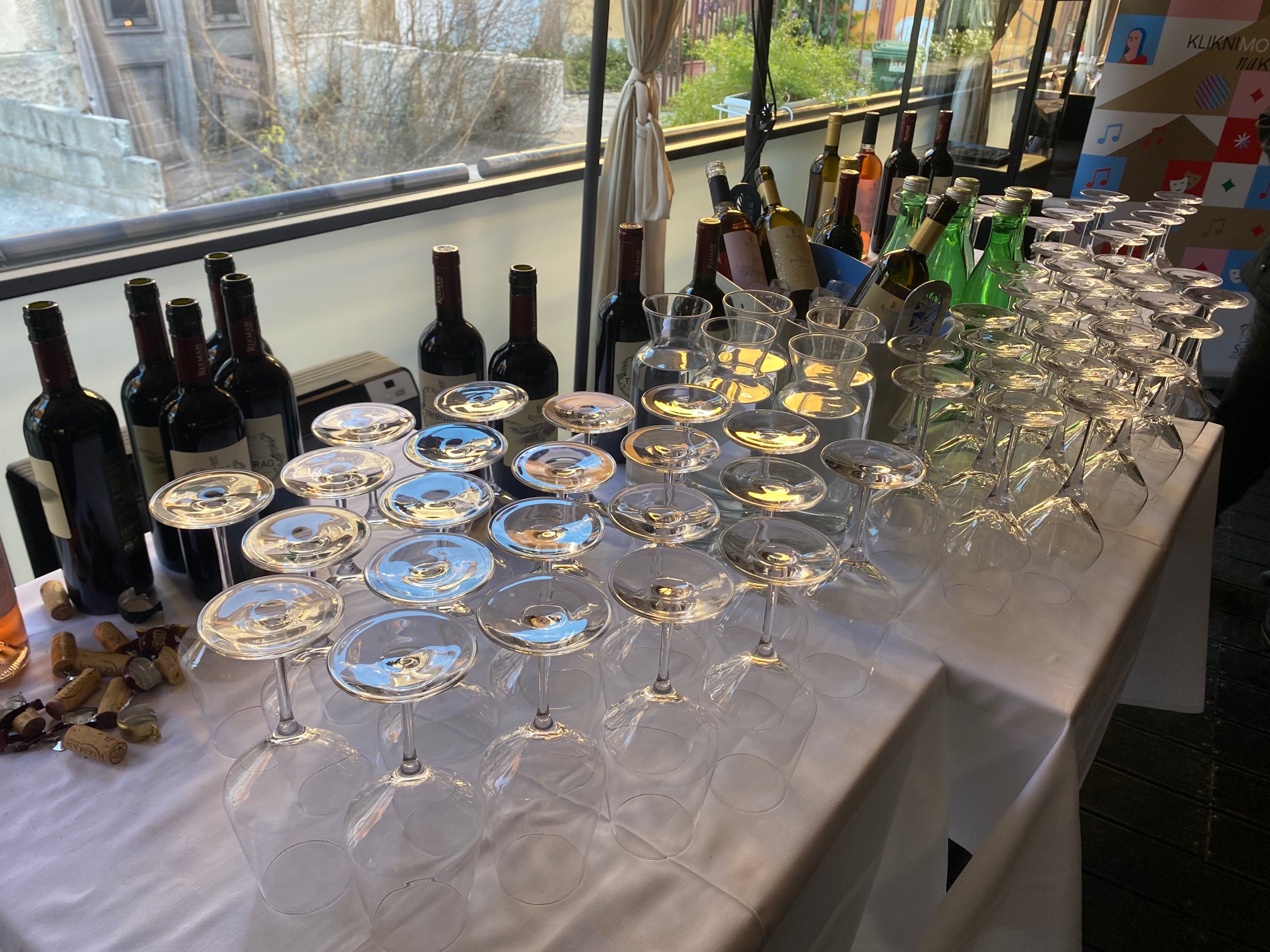
We are telling a story about sustainability, about the great potential of autochthonous Dalmatian and Croatian varieties, about our ecological vineyards from the youngest Croatian vineyard Komarna.”
Split-Dalmatia County and the Split-Dalmatia County Tourist Board are avid supporters of Gastroadvent in Split, thus promoting the Mediterranean diet and local producers, entrepreneurs, and tourism workers.
The Split Tourist Board has worked hard to position the destination, harnessing a natural combination of history, gastronomy, and modernity, all to protect the components of the Mediterranean diet. The City of Split is determined to support projects that benefit its residents and demands guests after authentic experiences and new technological opportunities.
The Croatian Chamber of Commerce has advocated for years to encourage the representation of domestic products, and since 1997 has implemented the national project “Let’s Buy Croatian.” The project aims to increase the consumption of local products and thus support the economy. This project is of particular importance, emphasized by the director Joze Tomaš, and confirmed by the cooperation with Gastroadvent.
JU RERA S.D., as part of the MD.net project to establish innovative food products, has cooperated with primary and secondary schools in Split-Dalmatia County and stakeholders involved in producing or marketing Mediterranean food products and promoting the Mediterranean way of life. The MD.net project focuses on development opportunities and problem-solving related to popularizing the Mediterranean diet. The Mediterranean diet is a part of the Mediterranean identity inscribed in the UNESCO list of intangible cultural heritage. The project aims to strengthen research in this area following the UNESCO Convention on Mediterranean Nutrition, raise the quality of nutrition and life in 9 project partner countries, and promote the Mediterranean diet, which is recognized as the gold standard of proper nutrition with far-reaching health benefits.
Apart from the desire to involve as many people as possible and bring them closer to the importance of the Mediterranean diet in everyday life, as well as its impact on their health, the other goal of the project is to establish a standard in the Med Diet Declaration logo to classify Mediterranean areas. The ultimate goal of awarding the Declaration is to position Split-Dalmatia County as a desirable Mediterranean culinary region.
Split Gastroadvent is held every Advent Sunday at a new location, honoring a different group of journalists with new culinary creations at each event.
To read more about lifestyle in Croatia, follow TCN’s dedicated page.

